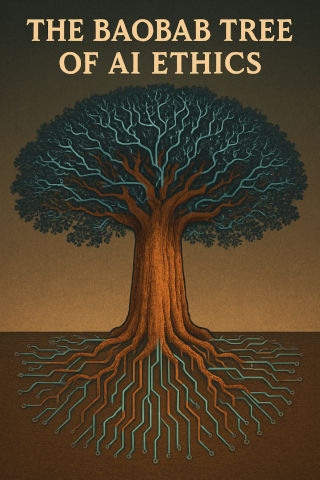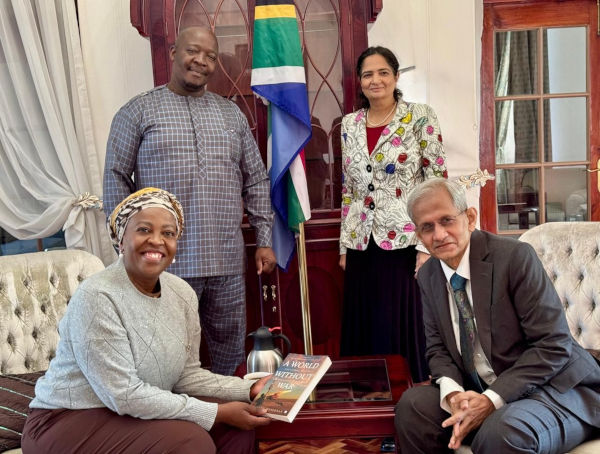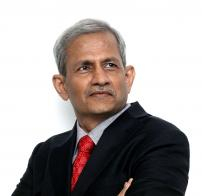[Play Time: 16 min]
In this thought-provoking conversation, Dr. Sundeep Waslekar, President of Strategic Foresight Group and global thought leader on conflict resolution, reflects on his recent journey across South Africa—from Johannesburg to Pretoria to Cape Town. He shares his encounters with political leaders, technologists, and educators who are shaping an AI future grounded in ethics and inclusivity.
In conversation with Indrajit Gupta, Co-founder of Founding Fuel, Dr. Waslekar explores South Africa’s bold ambitions to become not just a user of AI—but a rule-shaper in its global governance. From grassroots training in robotics for disadvantaged youth to the philosophical stance against algorithmic bias, this dialogue is a powerful reminder that moral imagination still matters in the digital age.
Read Sundeep Waslekar's full column:
The Ubuntu of Artificial Intelligence
Can South Africa’s philosophy of shared humanity guide the world toward ethical AI?
[Read Time: 3 min]

Kgalema Motlanthe, a revered elder statesman in South Africa and the country’s former President, is deeply preoccupied with the future. His foundation in Johannesburg works with schoolchildren from underserved communities, equipping them with digital skills in robotics and coding. When I visited, the energy in the room was infectious — 14- and 15-year-old boys and girls, bubbling with enthusiasm as they interacted with technology. The next phase of the programme will introduce them to the world of artificial intelligence.
His friend and fellow freedom fighter, Mathews Phosa, is pursuing a complementary path. Over the last two decades, Phosa has become a formidable political strategist — instrumental in toppling President Thabo Mbeki and in backing the rise of both Jacob Zuma and Cyril Ramaphosa. A lawyer, businessman, author, and political heavyweight, Phosa is equally concerned about South Africa’s position in the global AI landscape. His focus: ensuring the country’s policymakers adopt frameworks that allow South Africa to be a rule shaper, not merely a rule taker, when it comes to global AI governance.
Together, Motlanthe’s bottom-up approach and Phosa’s top-down push carry a common message: despite the burdens of its past, South Africa must not lose sight of the future. Artificial Intelligence, they understand, is a defining force of the 21st century.
Fighting Algorithmic Apartheid
South Africans are outraged by the racial bias embedded in current AI models. Ask ChatGPT, Grok, or Gemini to describe a successful businessman, and you’re likely to see the image of a white man in a suit. Ask them to describe a criminal, and the answer may resemble a black man in a torn shirt. These biases are deeply offensive — and dangerously misleading.
In response, South African innovators like Pelonomi Moiloa and Vukosi Marivate are developing Small Language Models trained on the country’s rich linguistic diversity. It’s part of a growing global trend — India, Korea, Brazil, and Saudi Arabia are all investing in AI models built on local data. But the larger challenge remains: the dominant models shaping global narratives still carry skewed representations of race, gender, and culture.

[Maropene Ramokgopa, Planning Minister in South African President’s Office, discussing South Africa’s AI policy with the author]
That’s why South Africa believes the fight for representation must expand into a broader effort to shape the rules of the AI era. Complaining about bias is not enough. The real challenge lies in addressing the existential risks posed by powerful, unregulated systems — from runaway models to AI-enabled weaponisation.
A New Role on the Global Stage
Over lunch in Pretoria — mielie pap, the staple maize dish — I met Alfred Mashishi, a senior official in the Ministry of Digital Technology. He has authored several AI policy papers, some currently under parliamentary review. His message was unequivocal:
“South Africa wants to be a significant player on the global stage. This involves not only technological advancements but also influencing global AI ethics and governance frameworks.”
This sentiment was echoed by ministers, senior bureaucrats, and political leaders I met in both Pretoria and Cape Town.
South Africa brings a rare credibility to this mission. It is one of the few nations in history to have voluntarily dismantled its nuclear weapons. Its people remember what it took to overcome apartheid. That history fuels their determination to prevent a new form of “Algorithmic Apartheid” — where opaque systems and invisible biases entrench inequality and injustice once again.
Ubuntu as a Guiding Principle
At the heart of South Africa’s worldview is an indigenous philosophy called Ubuntu — “I am because we are.” It offers a powerful counterpoint to techno-dystopias. If AI threatens the stability or very survival of humanity, it threatens all of us. And if everyone is devastated, so am I. The critics argue that Ubuntu is not always practiced in daily life. But South Africa continues to uphold it in its foreign policy.
President Ramaphosa, who will host the G20 Summit this November, has a rare opportunity. South Africa is also an active member of BRICS and other pan-African forums. It can push for a new Ubuntu-based approach to global AI governance — one grounded in fairness, inclusion, and shared responsibility.
It won’t be easy. As G20 host, South Africa has received feedback from nearly 300 expert groups. Their recommendations on AI largely stop at improving access and inclusion. Few address the deeper concern — that AI is rapidly evolving into a class of highly autonomous, powerful systems that could one day escape human control.
Just as South Africa once stood firm in rejecting apartheid and dismantling its nuclear arsenal, it now faces a new moral frontier: to lead the call for AI governance rooted in justice, equity, and responsibility to all of humanity.
